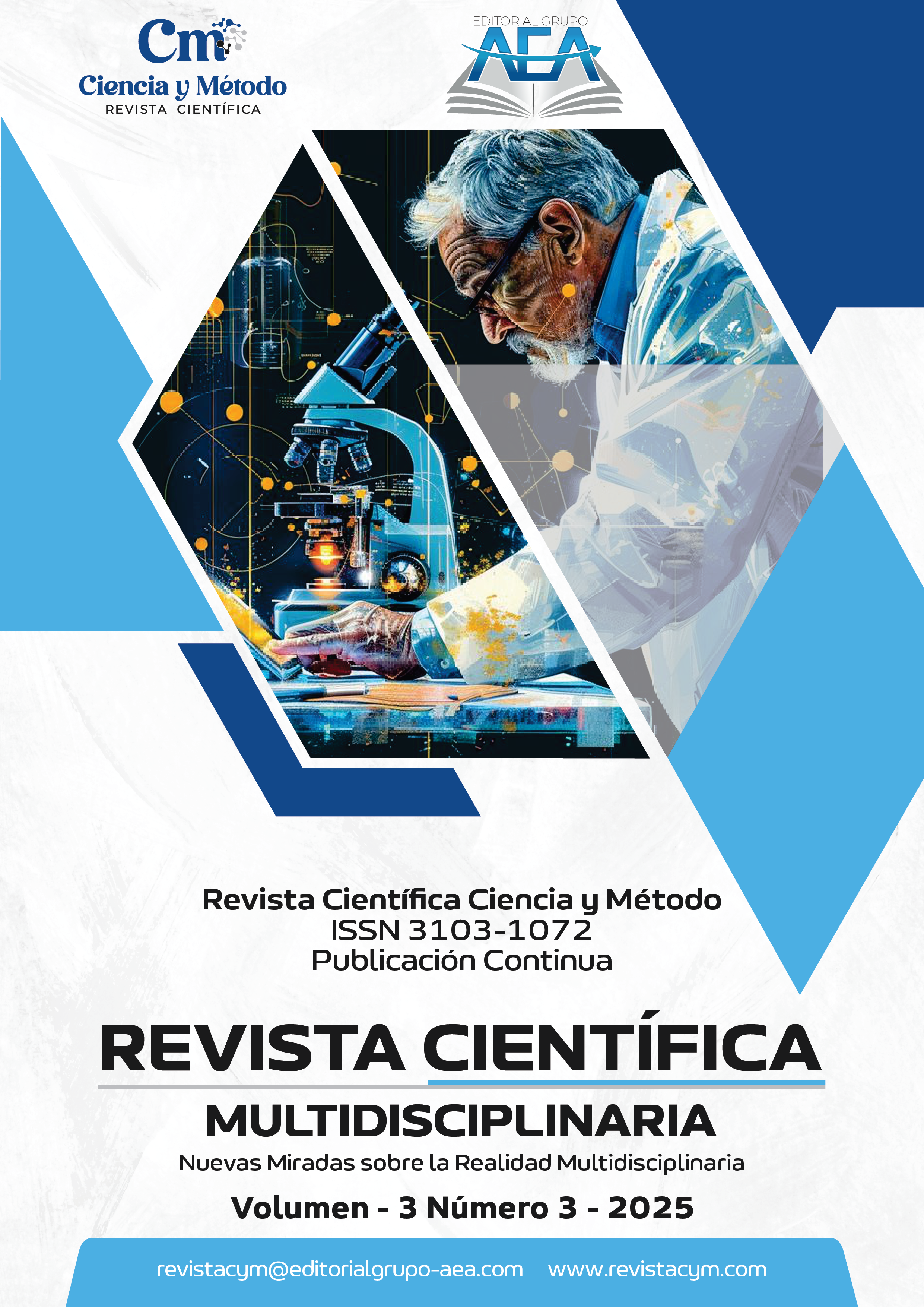Avances y desafíos en la contabilidad de costos en entornos industriales digitalizados
Contenido principal del artículo
Resumen
El estudio analiza los avances y desafíos que enfrenta la contabilidad de costos en entornos industriales digitalizados, motivado por la necesidad de adaptar los sistemas contables a la creciente complejidad derivada de la automatización y el uso intensivo de datos. Mediante una revisión sistemática de literatura científica publicada entre 2000 y 2024 en bases reconocidas como Scopus y Web of Science, se identificaron enfoques contemporáneos sobre la integración de sistemas ERP y la aplicación de inteligencia artificial para estimar, asignar y controlar costos con mayor precisión y oportunidad. Los principales hallazgos evidencian que estas tecnologías incrementan la capacidad predictiva y la calidad informativa, aunque su implementación enfrenta retos significativos asociados con la resistencia al cambio organizacional, la falta de capacitación especializada y la ausencia de normativas claras que regulen la transparencia y la interoperabilidad de los sistemas. El estudio concluye que el éxito de la contabilidad de costos digitalizada no depende exclusivamente de la inversión tecnológica, sino de la convergencia de estrategias de gestión del cambio, desarrollo de competencias analíticas y la elaboración de marcos regulatorios que aseguren la confiabilidad y la integridad de la información contable generada en contextos industriales dinámicos.
##plugins.themes.bootstrap3.displayStats.downloads##
Detalles del artículo
Sección

Esta obra está bajo una licencia internacional Creative Commons Atribución-NoComercial 4.0.
Cómo citar
Referencias
Alles, M., & Piechota, M. J. (2020). Digital technologies and the changing role of accounting. Accounting Horizons, 34(4), 75–102.
Appelbaum, D., Kogan, A., Vasarhelyi, M. A., & Yan, Z. (2017). Impact of business analytics and enterprise systems on managerial accounting. International Journal of Accounting Information Systems, 25, 29–44. https://doi.org/10.1016/j.accinf.2017.03.003 DOI: https://doi.org/10.1016/j.accinf.2017.03.003
Bhimani, A., & Willcocks, L. (2014). Digitisation, ‘Big Data’ and the transformation of accounting information. Accounting and Business Research, 44(4), 469–490. https://doi.org/10.1080/00014788.2014.910051 DOI: https://doi.org/10.1080/00014788.2014.910051
Casanova-Villalba, C. I., & Hurtado-Guevara, R. F. (2023). Auditoría fiscal y evasión tributaria mediante un enfoque sustentado en evidencia empírica reciente. Multidisciplinary Collaborative Journal, 1(1), 39-51. https://doi.org/10.70881/mcj/v1/n1/10 DOI: https://doi.org/10.70881/mcj/v1/n1/10
Casanova-Villalba, C. I., Herrera-Sánchez, M. J., & Almeida-Blacio, J. H. (2025). Aplicaciones de inteligencia artificial en la auditoría financiera contemporánea. Revista Científica Ciencia Y Método, 3(2), 30-43. https://doi.org/10.55813/gaea/rcym/v3/n2/3 DOI: https://doi.org/10.55813/gaea/rcym/v3/n2/3
Coad, A., Jack, L., Kholeif, A., & Papazafeiropoulou, A. (2015). Accounting and control in a digital era: The introduction of enterprise resource planning systems. European Accounting Review, 24(4), 753–786.
Coello-Zavala, N. J., & Concha-Ramírez, J. A. (2025). Análisis de la incidencia de la IA aplicada en el asesoramiento financiero y tributario de 2020-2024 . Journal of Economic and Social Science Research, 5(1), 245–264. https://doi.org/10.55813/gaea/jessr/v5/n1/175 DOI: https://doi.org/10.55813/gaea/jessr/v5/n1/175
Granlund, M. (2011). Extending AIS research to management accounting and control issues: A research note. International Journal of Accounting Information Systems, 36(7), 549–552. https://doi.org/10.1016/j.accinf.2010.11.001 DOI: https://doi.org/10.1016/j.accinf.2010.11.001
Granlund, M., & Malmi, T. (2002). Moderate impact of ERPS on management accounting: A lag or permanent outcome? Management Accounting Research, 13(3), 299–321. https://doi.org/10.1006/mare.2002.0189 DOI: https://doi.org/10.1006/mare.2002.0189
Herrera-Sánche, M. J., Casanova-Villalba, C. I., & Ruiz-López, S. E. (2023). Adaptación de las normativas de auditoría frente a los avances tecnológicos emergentes. Revista Científica Ciencia Y Método, 1(3), 1-15. https://doi.org/10.55813/gaea/rcym/v1/n3/16 DOI: https://doi.org/10.55813/gaea/rcym/v1/n3/16
Hurtado-Guevara, R. F., Almeida-Blacio, J. H., & López-Pérez, P. J. (2023). Desafíos éticos en la adopción de tecnologías emergentes en contabilidad. Revista Científica Ciencia Y Método, 1(2), 29-42. https://doi.org/10.55813/gaea/rcym/v1/n2/13 DOI: https://doi.org/10.55813/gaea/rcym/v1/n2/13
Naranjo-Padilla, M. I., Herrera-Sánchez, M. J., & Coello-Panchana, A. J. (2024). Análisis bibliográfico del impacto de la transformación digital y tecnologías emergentes en la contabilidad actual. Multidisciplinary Collaborative Journal, 2(1), 52-64. https://doi.org/10.70881/mcj/v2/n1/31 DOI: https://doi.org/10.70881/mcj/v2/n1/31
Nitzl, C., Margraf, J., & Binder, C. (2019). Management control systems and the strategy of the digital firm. Journal of Management Control, 30(4), 399–433.
Pilay-Asunción, D. D., & Marcos-Rodriguez, K. L. (2025). Los desafíos tecnológicos y el rol del contador en la automatización de procesos contables. Journal of Economic and Social Science Research, 5(1), 306–329. https://doi.org/10.55813/gaea/jessr/v5/n1/178 DOI: https://doi.org/10.55813/gaea/jessr/v5/n1/178
Quattrone, P. (2016). Management accounting goes digital: Will the move make it wiser? Management Accounting Research, 31, 118–122. DOI: https://doi.org/10.1016/j.mar.2016.01.003
Rikhardsson, P., & Yigitbasioglu, O. (2018). Business intelligence & analytics in management accounting research: Status and future focus. International Journal of Accounting Information Systems, 29, 37–58. https://doi.org/10.1016/j.accinf.2018.03.001 DOI: https://doi.org/10.1016/j.accinf.2018.03.001
Rom, A., & Rohde, C. (2007). Management accounting and integrated information systems: A literature review. International Journal of Accounting Information Systems, 8(1), 40–68. DOI: https://doi.org/10.1016/j.accinf.2006.12.003
Sánchez‐Rodríguez, C. and Rafael Martínez‐Lorente, A. (2011), "Effect of IT and quality management on performance", Industrial Management & Data Systems, Vol. 111 No. 6, pp. 830-848. https://doi.org/10.1108/02635571111144937 DOI: https://doi.org/10.1108/02635571111144937
Scapens, R. W., & Jazayeri, M. (2003). ERP systems and management accounting change: Opportunities or impacts? A research note. European Accounting Review, 12(1), 201–233. https://doi.org/10.1080/0963818031000087907 DOI: https://doi.org/10.1080/0963818031000087907
Warren Jr., J. D., Moffitt, K. C., & Byrnes, P. (2015). How Big Data Will Change Accounting. Accounting Horizons, 29(2), 397–407. https://doi.org/10.2308/acch-51069 DOI: https://doi.org/10.2308/acch-51069





